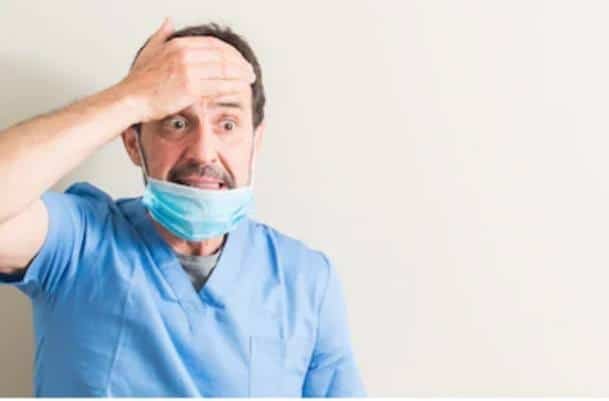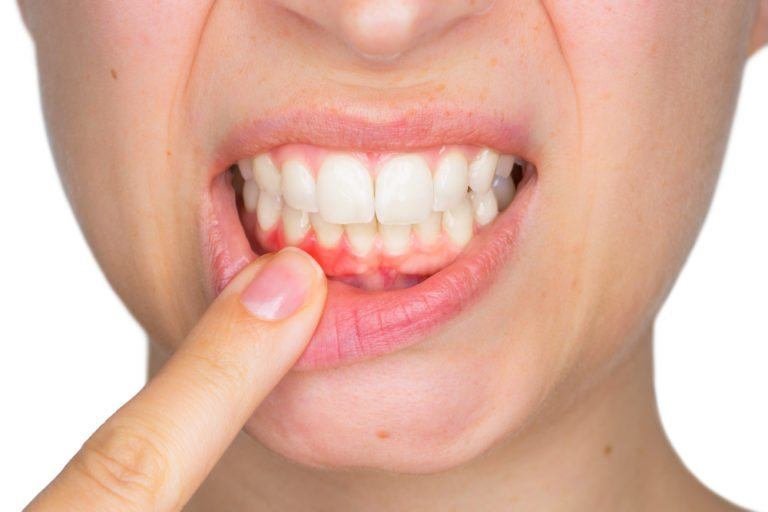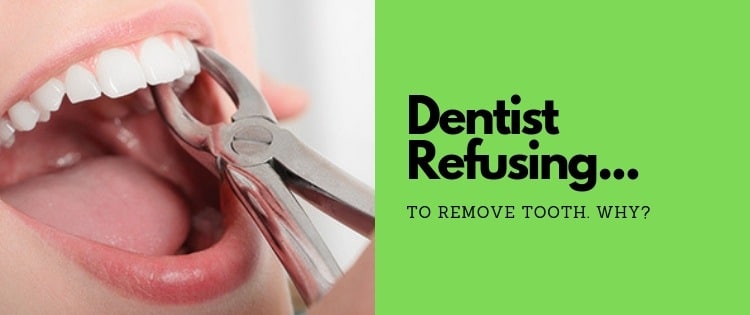Have you ever been crying of a toothache, wanting to just pull the thing out and get it over with?
But as soon as you go to your dentist and propose the idea of getting it removed, they refuse to do so.
Even if you insist, they are persistent on the idea of saving it.
But all your thinking is: Can A Dentist Refuse To Remove A Tooth if you want it to be pulled out?
It’s your tooth, so you should be the one to decide, right?
Well, nope.
Your dentist has invested years of their life studying about all these teeth and they have all the rights to say no. Therefore they definitely know better why pulling a tooth out is not a good idea.
It could either be that the tooth can be taken out but because of an extensive infection, you are advised to wait, or because of the kind of medicines you are taking.
Maybe the tooth is sound and can be saved by a root canal, which by the way is the best option ever.
So stop thinking that pulling that tooth out is an easy way out because there is so much more to it!
To find out why you should listen to your dentist when they are refusing to remove your tooth, please follow suit!
Why Won’t My Dentist Extract My Tooth?

While you are thinking ‘my teeth, my rules’ and hearing ‘blah blah blah’ instead of advice coming from your dentist, let me make it clear to you that according to law, it’s your dentist’s ethical right to explain the procedure as well as give reasoning to their patients.
Meaning that your dentist certainly has a lot of say in whether you get to keep the tooth or not.
The Comorbidities
Comorbidity is the presence of two or more diseases present in a person at the same time. The most common ones are diabetes and hypertension. They often coexist in a person and must be well taken care of.
For instance, if you have hypertension, and your blood pressure is not going lower than 140/90, you are most likely going to be refused of an extraction, especially if it’s a clinical setup.
Why?
Because before every extraction it’s necessary to give anaesthesia to numb the tooth and its surrounding structures.
As the anaesthetic contains epinephrine or adrenaline, it is very likely that it will put patients with high blood pressure at a risk of heart attack and stroke during the procedure by increasing it even further.
Now if you are visiting a dentist who is operating in a clinical set up, which is mostly the case, they do not have the equipment and facilities to make sure that an extraction can take place even with such grave risks.
Therefore either they will ask you to take help from your general practitioner or cardiologist and get the hypertension treated before the extraction takes place, or refer you to an oral and maxillofacial surgeon or anyone who is working at a hospital set up so that you and your life are at absolutely No Risk during a dental extraction.
The second most common comorbid is diabetes. Anyone who has uncontrolled diabetes will most definitely be refused an extraction.
Even if you do get an extraction with random glucose level more than 190 mg/dL, the extraction socket will take a long time to heal.
In a normal person, it will take a week to heal completely. A diabetic’s extraction socket will take more than 15 days. This in turn will not only make eating and chewing difficult for the patient, it will also put them at a risk for further complications such as infections and dry socket.
Therefore, it’s necessary that the blood glucose levels are in control before, after and during a dental extraction to avoid any further complications.
If the extraction cannot wait due to the involvement of the floor of the mouth etc., an emergency procedure in a hospital set up with additional medical management takes place.
So if you are suffering from both hypertension and diabetes at the same time and are negligent towards taking your medicines, don’t get mad at your dentist when they refuse to pull your tooth out. Trust me; they are doing you a favor!
Infection, Infection!

Another reason why a dentist will refuse, (more likely delay) the extraction is if the tooth has an extensive infection.
Now the deal with infection is that it causes the tissues to become inflamed and make their pH go on the acidic side. Since the most commonly used anaesthetics are all basic in nature, their membrane interactive potencies decrease significantly when subjected to acidic environments.
If you remember 7th grade science, when acids and bases combine, a neutralization reaction happens. Similarly, when an anaesthetic is injected in an inflamed or infected tissue, the basicity of the anaesthetic and the acidity of the inflamed tissue combine, causing a neutralization reaction to happen.
The result is that the anaesthesia doesn’t work and thus, an extraction cannot take place.
In such cases the dentists usually avoid extracting the tooth as there is no pain management without anaesthesia.
Along with that, the patient is advised to do a course of antibiotics for the next 3-5 days and get back when the infection has subsided.
So if the pain in your tooth is not letting you sleep and you are jumping on the dental chair when the dentist is not even touching your tooth, its best to delay the extraction process for another week and take antibiotics to cool down the raging bacteria!
No Tooth Is Like A Real Tooth
Many times a patient is insistent upon getting a painful tooth extracted when in reality it can be saved by doing a root canal.
They don’t understand why their dentist is not choosing the easy way out by pulling the teeth out and are constantly asking them to save the tooth.
The reason is simple…
An artificial tooth can never do the job as good as the god-gifted one you have been taking for granted! Therefore, when infection has not spread to the root or when the tooth structure is sound enough to be saved, it should most definitely be saved. And if your dentist removes a sound tooth, they are committing a perjury, unless it is for orthodontic reasons.
So when root canal is an option, always choose that because no matter how vast the field of dentistry gets, nature will always win!
Certain Diseases And Medicines
Bleeding disorders, leukemia (blood cancer) or severe liver cirrhosis are a big no to a dental surgery being carried out in a clinical set up.
Along with that, those taking medicines like ascard or aspirin are mostly refused of a dental extraction as these medicines increase your bleeding tendency.
Medicines like bisphosphonates given to patients with osteoporosis will cause the extraction socket to take longer than usual to heal.
In all such cases the dentists usually refer their patients to an oral and maxillofacial surgeon or ask the patient to get their physician’s consent to stop the medication so that the extraction can be carried out.
It should be well understood by the patient as well that the bleeding control measures are essential during an extraction and its best to get your extraction done at a hospital set up if you are suffering from any such disorder that will make it hard for your dentist to control the bleeding.
What Risks Are Associated With Getting Teeth Removed?

If you are still stubborn on the idea of removing teeth being the easiest option, then you must know that there are several risks associated with getting your teeth removed. These are:
- Misalignment of teeth – Once a tooth is taken out, there is a space left. If that is not filled by prosthesis, the surrounding teeth will start moving, trying to occupy that space. And this will lead you to several other dental visits, costing you a lot more to get these teeth aligned and wear retainers forever.
- Nerve Injury and exposure of the sinus – If a maxillary molar is being taken out, there is a risk of opening a hole into the maxillary sinus. Therefore, the dentists usually take X-Rays to figure out where the sinus is and plan their treatments accordingly. Along with that, in both maxilla and mandible, it is possible that a nerve that is supplying the tooth or the surrounding structures is damaged, causing numbness or a tingling sensation on the area on a permanent basis. But because both of these things happen once in a blue moon, nothing to worry about.
- Dry socket – Or osteitis is a very common complication of an extraction. It occurs when the clot that is supposed to heal the socket is dislodged prematurely. Thankfully, it can be treated, and the socket will heal again soon.
In A Tooth-Shell

Tooth ache is hands down one of the worst pain’s humankind can experience. All you want to do is rip that part of your jaw out! But when your dentist does not agree with you, it can be a bummer.
You don’t want to hear all that medical stuff, but trust me, it’s necessary.
First of all, if your tooth is painful due to an infection that can be taken care of by a root canal, extraction should and will never take place.
Your tooth is a blessing and you need to stop taking it for granted. Please trust the specialist!
Now if the tooth can’t be saved and your dentist is still refusing to pull it out, it could be because you are suffering from hypertension or/and diabetes.
If you are taking your medicines on time and both your blood pressure and glucose levels are in the normal range there shouldn’t be any problem.
But if both are far out of the normal range, extraction in a clinical setup can be a problem. Same goes for those suffering from any bleeding disorders or taking medicines that will make you bleed a lot or make the healing process much slower.
Conversely the most common reason why a dentist might refuse to do an extraction is the presence of an extensive infection. As the anaesthesia won’t work on an inflamed site, the extraction is mostly delayed, followed by a course of antibiotics.
Apart from that, there are certain risks involved with getting your teeth extracted. The surrounding teeth will start occupying the space left by the extracted tooth and eventually lead to misalignment of the teeth.
Bone resorption is also very likely to occur over the years.
If the tooth is too close to the nerve, that particular nerve could get damaged during the procedure causing complete numbness of the respective area.
Dry socket being the most common complication that occurs when the healing clot is dislodged causing pain and foul taste/smell.
I hope that with all this extensive information you have understood that a dentist can most definitely refuse to extract a tooth.
They will always do what’s best for you, so trust them and carefully listen to their flossophy!
References
Oxford handbook of clinical dentistry
Contemporary oral and maxillofacial surgery
https://emedicine.medscape.com/article/82774-overview#a3
https://www.ncbi.nlm.nih.gov/pmc/articles/PMC4031223/
https://www.ncbi.nlm.nih.gov/pmc/articles/PMC3218719/
Related Post:
How Long Does it Take for Teeth to Shift?

